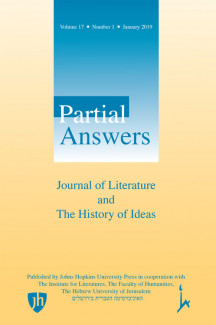
Johns Hopkins UniversityEst. 1876
America’s First Research University
Inspection of Introspection

Earlier this year, a trio of European academics brought together a collection of papers for a special forum in Partial Answers: Journal of Literature and the History of Ideas. "Narrating Selves from the Bible to Social Media" built off of philosopher Alasdair MacIntyre's reflections on self-narration and resulted in essays which emphasize a degree of creativity when people tell their life stories as well as highlighting the role of the everyday and the media through which selves are portrayed. Matti Hyvärinen (Tampere University), Mari Hatavara (Tampere University) and Jarmila Mildorf (University of Paderborn) joined us for a Q&A about the issue.
How did you come to use Alasdair MacIntyre as the point of reference for the introduction to the issue?
MacIntyre was one of the first to introduce and theorize narrative identity. He was either followed or harshly criticized over the 1980s and 90s. He has been the iconic adherent of the idea of narrative coherence & narrative as the provider of the coherence of the self. By contrasting the current contributions to MacIntyre’s work we were able to concretize the huge change in narrative studies.

We believe that different narrative environments with their medial and material affordances provide different answers to the main question of the forum: how do we narrate selves. The object of study greatly affect the results, and therefore a temporally, generically and medially varied materials allow the forum to explore the ways of narrating selves thoroughly. Variation in materials studied also serve as a touchstone for theoretical assumptions and conceptual definitions at the heart of narrative studies at large: experientiality, mediality and tellability. It allows the contributions to tease out functions of narrative means and modes as well as the interplay between convention and innovation.
What did you learn in putting together this special issue?
Being an editor provides great opportunity to learn from the contributions the forum is comprised of. The different approaches to the joint research focus - in this case the ways of narrating selves - stimulate new ideas on the connections and differences between theoretical orientations and methodological choices. In this forum, especially topical has been the importance of mediacy and historicity in shaping narrative selves. Taking into account both the crafting of narratives and their reception helps to understand the narrative dynamics at work in identity formation and social interaction.
What made Partial Answers the right forum for these papers?
Partial Answers' interdisciplinarity and focus on literature together make it an ideal forum for these articles. What is more, the historical perspective of the journal is perfectly in line with the aim of the special issue; in tracing the ways of narrating selves through time and in different narrative environments the contributions together demonstrate the importance of literature for the history of ideas.


